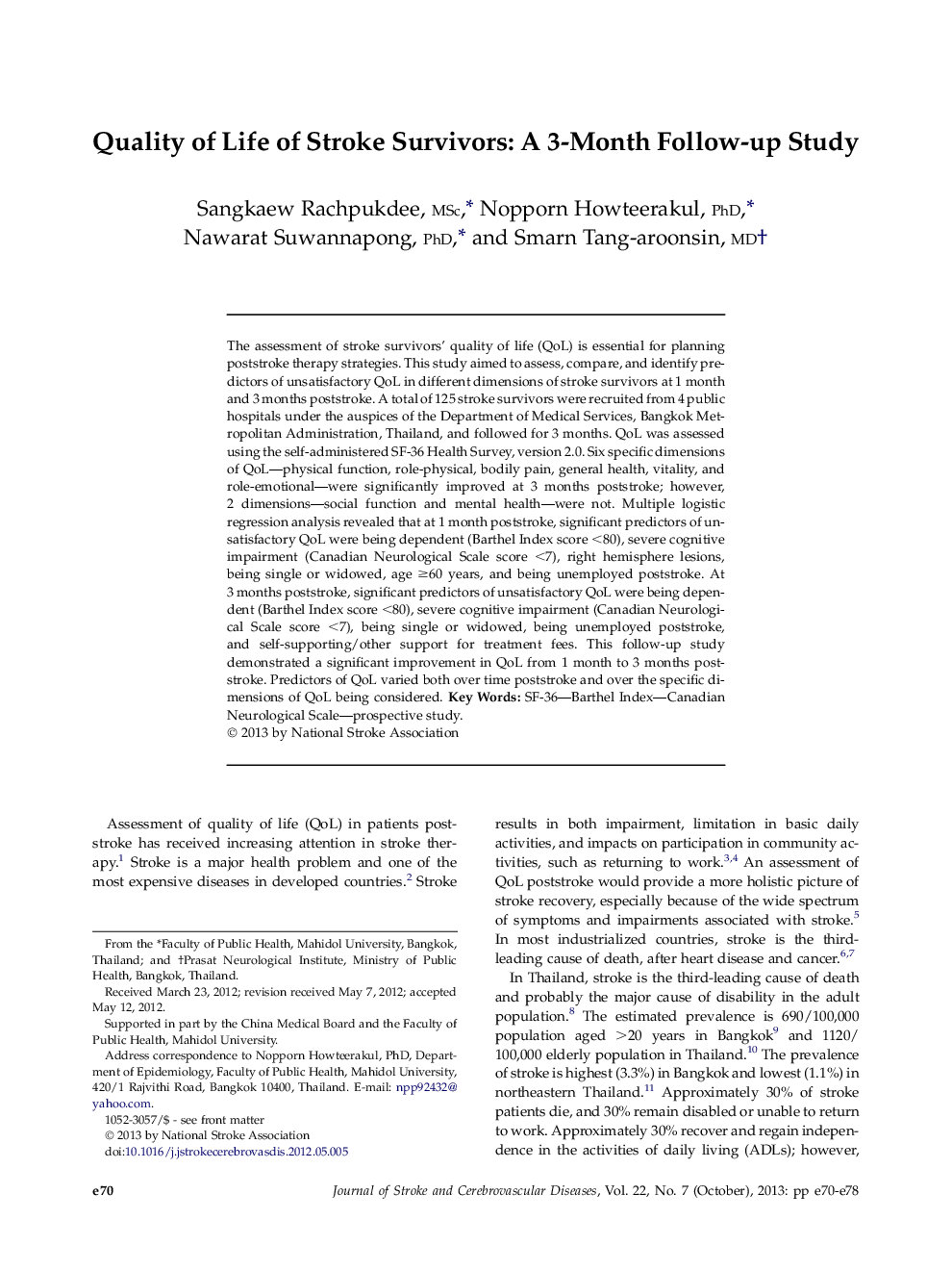| Article ID | Journal | Published Year | Pages | File Type |
|---|---|---|---|---|
| 5874478 | Journal of Stroke and Cerebrovascular Diseases | 2013 | 9 Pages |
The assessment of stroke survivors' quality of life (QoL) is essential for planning poststroke therapy strategies. This study aimed to assess, compare, and identify predictors of unsatisfactory QoL in different dimensions of stroke survivors at 1 month and 3 months poststroke. A total of 125 stroke survivors were recruited from 4 public hospitals under the auspices of the Department of Medical Services, Bangkok Metropolitan Administration, Thailand, and followed for 3 months. QoL was assessed using the self-administered SF-36 Health Survey, version 2.0. Six specific dimensions of QoL-physical function, role-physical, bodily pain, general health, vitality, and role-emotional-were significantly improved at 3 months poststroke; however, 2 dimensions-social function and mental health-were not. Multiple logistic regression analysis revealed that at 1 month poststroke, significant predictors of unsatisfactory QoL were being dependent (Barthel Index score <80), severe cognitive impairment (Canadian Neurological Scale score <7), right hemisphere lesions, being single or widowed, age â¥60 years, and being unemployed poststroke. At 3 months poststroke, significant predictors of unsatisfactory QoL were being dependent (Barthel Index score <80), severe cognitive impairment (Canadian Neurological Scale score <7), being single or widowed, being unemployed poststroke, and self-supporting/other support for treatment fees. This follow-up study demonstrated a significant improvement in QoL from 1 month to 3 months poststroke. Predictors of QoL varied both over time poststroke and over the specific dimensions of QoL being considered.
